1. Affordable Housing Crisis
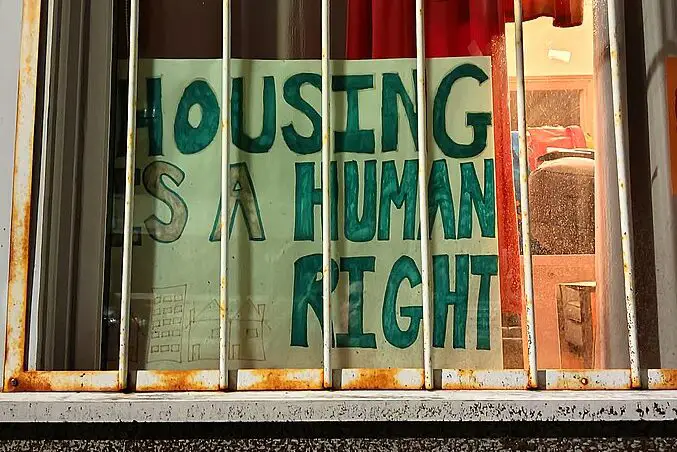
Finding affordable housing feels like a never-ending struggle for millions, but few talk about how it quietly affects their peace of mind. Rent prices and home prices have surged, pushing many into tiny apartments or long commutes. The fear of eviction or homelessness lurks in the background. It’s a stress that shapes everyday decisions yet is rarely shared openly.
This crisis impacts not just where people live, but how they live—sacrificing quality, time, and stability. Families worry about long-term security and community ties. The housing market feels out of reach for many first-time buyers. The quiet panic about losing a stable roof over one’s head is widespread but seldom voiced.
2. The Future of Social Security
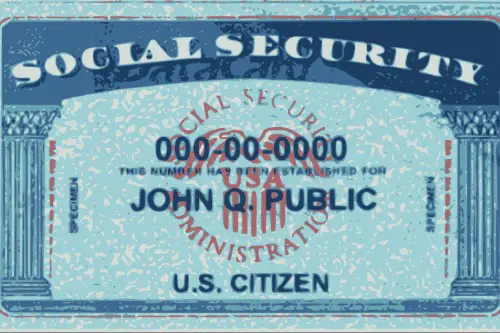
Social Security feels like this distant safety net, but deep down, lots of Americans wonder if it’ll be there when they retire. Discussions about the program’s sustainability get buried in politics, but the math shows challenges ahead. People nearing retirement quietly stress over whether their benefits will be cut or delayed. It’s a topic everyone tiptoes around because it feels like admitting you might be vulnerable.
Younger generations are especially anxious—they worry they’re paying into a system that might not support them later. This isn’t just about money; it’s about the security of a stable retirement. The fear quietly shapes how people save and plan for the future. Still, few openly discuss this looming concern.
3. Climate Change Impact on Daily Life

Many Americans acknowledge climate change is real but feel overwhelmed by its day-to-day implications. The thought of more extreme weather, rising costs for food and energy, or relocating due to natural disasters is unsettling. People worry about the health impacts and economic fallout but often don’t voice these concerns openly. It’s easier to focus on immediate problems than confront this slow-moving crisis.
Yet, the anxiety is real—especially for families in vulnerable regions. Insurance premiums are rising, and some homes are becoming uninsurable. The silent panic about what the next decade might bring affects choices around housing, jobs, and lifestyle. It’s a quiet worry that many keep to themselves.
4. The Shrinking Middle Class

The American middle class has been the backbone of the country, but lately, many feel that it’s disappearing. Wages have stagnated while living costs rise, squeezing budgets tighter. People feel stuck in jobs with little growth and face mounting debt, yet admit this fear only to close friends. The idea that “making it” is slipping away is a source of silent panic.
This isn’t just about money—it’s about identity and opportunity. Without a stable middle class, upward mobility feels like a myth to many. Families worry about passing financial stability to their kids. It’s a pressure cooker of hope and anxiety bubbling under the surface.
5. Political Polarization and Division

Americans notice the deepening political divide but often avoid talking about how exhausting and scary it feels. Conversations about politics increasingly lead to conflict or alienation from friends and family. Many worry about the stability of democratic institutions without saying it out loud. The fear that the country might become ungovernable is a quiet tension people carry.
This division seeps into everyday life—workplaces, social groups, and even neighborhoods. People feel more isolated and less trusting of each other. There’s a sense that common ground is shrinking, and that’s deeply unsettling. Despite this, many stay silent to avoid confrontation.
6. Data Privacy Erosion

It’s hard to find anyone who’s not a little uneasy about how much of their personal data is floating around online. People worry about identity theft, targeted ads, or worse, but discussing it feels too technical or paranoid. The reality is that most Americans have little control over how their information is used. This lack of control breeds quiet anxiety about what’s being collected and why.
The feeling of being constantly watched or tracked is unsettling, even if it’s not fully understood. Some fear the consequences—like data being used against them in ways they can’t predict. It’s a modern fear that doesn’t get much airtime but is deeply felt. The silent panic grows as technology evolves faster than protections.
7. The Student Debt Burden
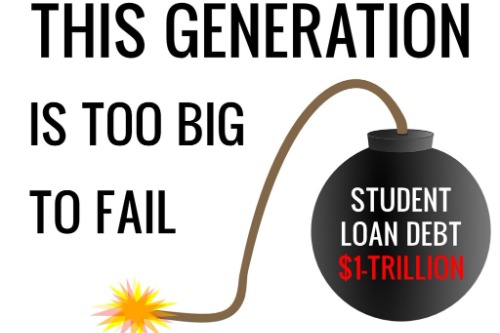
Student loans have become this invisible weight dragging down a whole generation. Many people don’t talk about the stress it causes in their daily lives, from delaying homeownership to avoiding starting families. The amount of debt is staggering, and the payoff timeline feels endless. It’s a quiet crisis that shapes life choices without being openly discussed.
For graduates and parents alike, the fear of never escaping this financial trap is real. It affects mental health and future planning in profound ways. Despite being a national issue, it’s often treated like a personal failure. That silence makes the burden feel heavier.
8. Job Automation and AI Taking Over

There’s a growing buzz about AI and automation, but many workers quietly worry about losing their jobs to machines. Industries like manufacturing, retail, and even white-collar jobs face upheaval. People are scared of being replaced but rarely admit it out loud at work. It’s a fear that can’t easily be expressed without sounding outdated or defeated.
This uncertainty leads to anxiety about retraining or switching careers later in life. The speed of technological change feels relentless and unforgiving. Many wonder if their skills will ever be enough. It’s a modern dilemma that remains unspoken in most circles.
9. The Rising Cost of Healthcare

Healthcare costs keep climbing, and most Americans feel the pinch but rarely admit how stressful it is. People worry about medical bills that could wipe out their savings overnight. Even those with insurance often face high deductibles or surprise expenses. It’s a quiet fear that many carry, especially if they or a loved one get seriously ill.
This anxiety isn’t just about the money—it’s about access. Some delay going to the doctor or skip medications because they can’t afford it. It’s tough to talk about, but it’s a reality affecting millions. The uncertainty around healthcare bills haunts everyday decisions for many families.
10. Mental Health Stigma
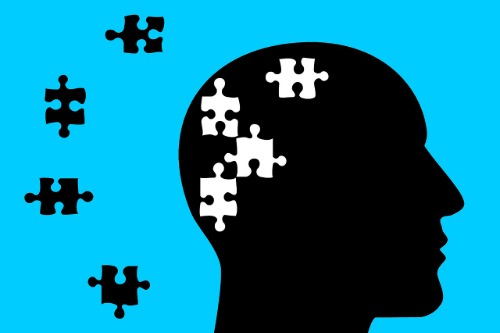
Mental health struggles have become more common, but a lot of people still feel too ashamed or scared to talk about them openly. The pressure to “keep it together” means many suffer in silence. Anxiety, depression, and burnout are rising, yet admitting to them can feel risky socially or professionally. This stigma creates a hidden panic that few dare to share.
The pandemic brought more attention to mental health, but the underlying fear remains. People worry about judgment, losing jobs, or being misunderstood. This quiet suffering affects relationships and productivity. The collective silence only deepens the problem.
11. Gun Violence Anxiety
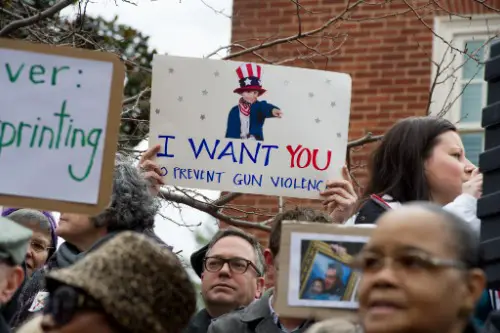
Gun violence is a daily headline, yet many Americans don’t openly express their fear for personal safety. It’s a topic loaded with political tension, so people often keep their concerns to themselves. The idea that you or your family could be caught in the wrong place at the wrong time is a persistent worry. This fear influences where people choose to live, work, and how they raise their kids.
The statistics and stories are hard to ignore, but talking about it can feel divisive. People want safety but also respect different viewpoints, which makes the conversation tricky. This tension leads to a quiet, simmering unease. It’s a collective fear that doesn’t always get voiced.
12. Inflation and Economic Uncertainty
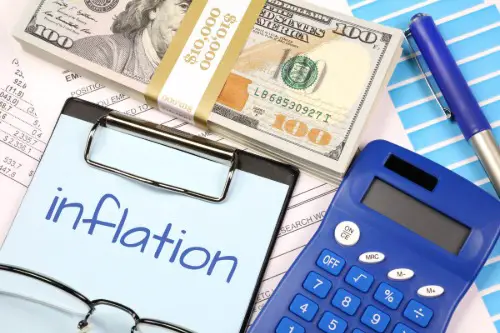
Inflation has been on the rise, and with it comes a quiet panic about stretching every dollar. Prices for groceries, gas, and essentials keep going up, but wages don’t keep pace. Many people feel the stress of making ends meet but don’t bring it up, fearing judgment or hopelessness. It’s a constant balancing act behind closed doors.
This uncertainty affects how people plan for the future or enjoy the present. Savings dwindle, and discretionary spending disappears. The economic unease is a slow-burning fear that colors everyday life. People hesitate to talk about it because it feels like a personal failure to struggle.
13. The Decline of Local Journalism

Local news outlets are shutting down or shrinking, but few openly discuss how much this worries them. Without trusted local journalism, people fear losing information about their communities—schools, local government, crime, and events. This gap creates a sense of disconnect and vulnerability. It’s a quiet loss that affects civic engagement and trust.
People rely more on social media or national news, which can miss or distort local issues. The lack of reliable information feeds anxiety about safety and representation. The decline in local reporting is like losing a neighborhood’s voice. It’s a concern simmering beneath the surface but rarely acknowledged.
14. The Opioid and Drug Crisis

The opioid epidemic and broader drug issues remain a hidden source of fear for many families. People often don’t talk about it openly because of stigma or denial. But the reality is that addiction and overdoses touch almost every community. The threat feels close, even if not always visible, creating quiet panic about safety and health.
Families worry about their loved ones or their neighborhoods, fearing the next crisis. The mental health and economic consequences add layers of stress. This epidemic is a shadow over many lives, yet conversations about it are often hushed. The fear and grief it brings are profound but unspoken.
15. The Breakdown of Work-Life Balance

With technology always connected and job demands growing, many Americans quietly panic over losing any separation between work and personal life. The pressure to be “on” 24/7 means burnout is common, but few openly admit feeling overwhelmed. This blurring of boundaries affects mental health, relationships, and overall happiness. It’s a stress that builds quietly in the background of daily routines.
Remote work and gig economies have complicated things further—sometimes making it harder to “clock out.” People crave downtime but feel guilty taking it. The silent struggle to find balance is real and widespread. Yet admitting it can feel like admitting failure, so many keep it to themselves.
This post 15 Things Americans Are Quietly Panicking About That No One Wants to Say Out Loud was first published on American Charm.


